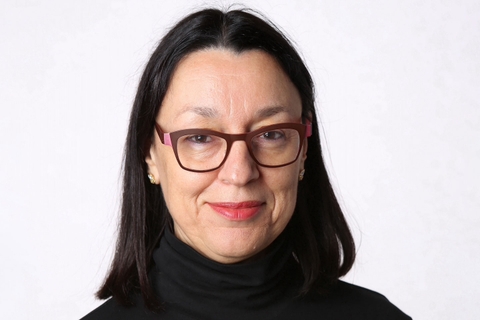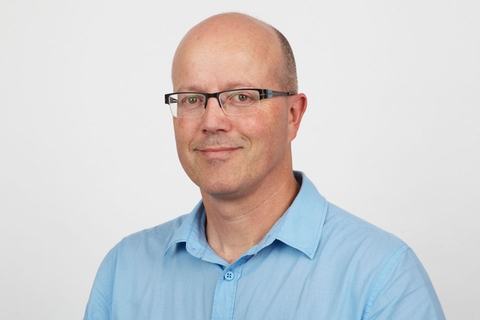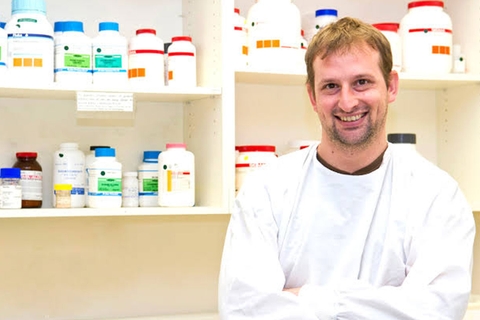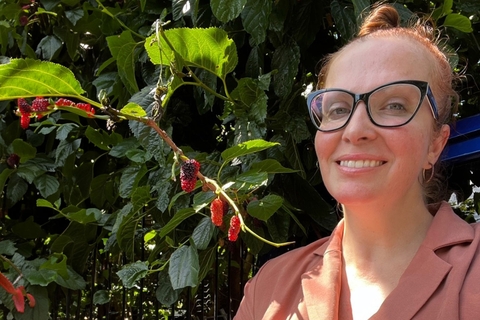- About
- Team
- Clinical trial locations
- Get Involved – Clinicians
- News & FAQs
The Australian Parkinson's Mission (APM) is an innovative seven-year research program, combining clinical trials and biomarker technologies with breakthrough genomics for people living with Parkinson's disease.
We hope to identify and validate a precision medicine framework for treating and preventing Parkinson's disease.
The APM was conceived as an Australian-led international collaboration between the Garvan Institute of Medical Research, Shake It Up Australia Foundation, the University of Sydney, the Cure Parkinson’s Trust (UK), The Michael J. Fox Foundation (USA) and Parkinson’s Australia.
In 2019 the APM received $30 million in Federal funding from the Medical Research Future Fund (MRFF) to slow and stop the progression of Parkinson’s disease.
How to get involved
To register your interest with the APM please contact: info@theapm.org.au
To find information about the participating clinical trial sites please check the clinical trial locations tab.

Professor Simon Lewis
Simon Lewis is a Consultant Neurologist, an NHMRC Leadership Fellow and Professor of Cognitive Neurology at Macquarie University. He has published over 300 peer review papers, 2 books and 8 book chapters and has helped to attract over $10 Million in funding from various sources including the NHMRC, MRFF, ARC and Michael J Fox Foundation to support his research targeting Parkinson’s Disease, Dementia with Lewy Bodies and related conditions. He is the Clinical Lead for the Australian Parkinson's Mission.

Professor Glenda Halliday
Glenda Halliday is a career neuroscientist known internationally for her research on the progression of non-Alzheimer dementias and motor neurodegenerative diseases. Her studies have provided the evidence base for understanding the pathologies underlying non-Alzheimer neurodegenerative diseases, clarifying the trajectory of these diseases over time and exploring any potential variability. She has >670 publications, is a highly cited researcher (Clarivate Analyticals) and has been recognised by membership to the Australian Academy of Science and the Australian Academy of Health and Medical Sciences and an Order of Australia, as well as through the following and other awards; 2022 NSW Scientist of the year, 2021 Robert A. Pritzker Prize for Leadership in Parkinson’s Research by the Michael J Fox Foundation, 2020 and 2014 NHMRC Elizabeth Blackburn Awards, 2016 Cozzarelli Prize for outstanding 2015 paper, National Academy of Sciences, USA; 2011 Nina Kondelos Prize for outstanding neuroscience, Australian Neuroscience Society. She is the Co-Scientific Lead for the Australian Parkinson's Mission.

Professor Antony Cooper
Antony Cooper is the Research Director of the Australian Parkinson’s Mission (APM) at the Garvan Institute of Medical Research in Sydney, and a conjoint Associate Professor at the University of New South Wales-Sydney. Antony graduated with a 1st class Science Honours degree in Biochemistry and Microbiology at the University of Otago (Dunedin, New Zealand), and a Commonwealth Scholarship funded his PhD at McGill University (Montreal, Canada). His post-doctoral research was conducted at the Institute of Molecular Biology at the University of Oregon (USA) prior to being an Assistant Professor, then tenured Associate Professor at the University of Missouri (USA).

Dr Nicolas Dzamko
Dr Dzamko is a Senior Research Fellow at the University of Sydney with 15 years postdoctoral experience in biochemistry and molecular biology. He has considerable experience in immune system dysfunction impacting the neurodegenerative condition of Parkinson’s disease (PD). He currently leads a research team using induced pluripotent stem cells and primary human biosamples to understand the causes of Parkinson’s disease (PD), facilitate new treatments and identify much needed biomarkers. Nic has made key discoveries involving the major PD-implicated genes LRRK2 and GBA1 that have led to biomarkers being developed for clinical trials, and he has developed stem cell models to understand the biological pathways implicated in PD. He has 69 career publications (H index=36, i10 index=51, Google). He has received funding from the NHMRC and 25 internationally competitive grants from the US based MJ Fox Foundation for PD research.

Jacqueline Everett
Since 2000, Jacqui has worked to regulatory and ethics / governance requirements in different regions from South East Asia, New Zealand, India, UK and USA delivery pivotal clinical trials. Jacqui has led international clinical trials for the world’s leading pharmaceutical companies and clinical research organisations before moving into Australia’s academic research sector where her skills have expanded into clinical governance and directing multicentre research programs for not for profit clients from inception. Throughout her career Jacqui has managed over $50M in clinical trial funding across 15 countries and 125 sites covering multiple therapeutic areas all while bringing five drugs to market.
The Australian Parkinson's Mission is conducting a seven-year Australian clinical trials program using repurposed drugs (potentially disease modifying drugs that could slow, stop or reverse Parkinson’s progression), integrated with transformative research, to identify and fast-track effective treatments for people with Parkinson’s.
Clinical trial site locations
The Australian Parkinson’s Mission clinical trial (APM002) is open for participant enrolment and recruitment. To determine whether you are eligible to participate in the clinical trial, please contact the closest site in your state.
Site | Contact name | Address | Phone/email |
|---|---|---|---|
St Vincent’s Hospital | Associate Professor Stephen Tisch, Consultant Neurologist | St Vincent's Hospital 390 Victoria Street | svhs.neurologytrials@svha.org.au +61 (2) 8382 4977 |
Parkinson’s Disease Research Clinic (Macquarie University) | PI: Professor Simon Lewis Study Coordinators: Karl Aoun Stacey West | 75 Talavera Road Macquarie Park NSW 2113
| +61 (2) 9850 2744 +61 (2) 9850 2755 |
John Hunter Hospital | PI: Dr Elizabeth Pepper Gillian Harris, Study Coordinator | 2 Lookout Road, New Lambton NSW 2305 | +61 (2) 4985 5442 |
Southern Neurology (Kogarah) | A/Prof Raymond Schwartz | 2/19 Kensington Street | +61 (2) 8566 1500 |
The Alfred Hospital | PI: Professor Kelly Bertram Study Coordinators:
| Alfred Hospital | 0487 531 448
|
Royal Melbourne Hospital | Associate Professor Andrew Evans, Principal Investigator Reena Chopra, Study Coordinator | 300 Grattan St, Parkville | |
Royal Adelaide Hospital | PI: Dr Michele De Sciscio | Level 9G 370 Royal Adelaide Hospital Port Road | |
Gold Coast Hospital and Health Service | Dr Saman Heshmat Coordinator: Vincent Sapaen | Gold Coast Hospital and Health Service | +61 (7) 5687 3893 0417 221 342 |
Please note: some sites may have additional processes e.g. wearing a mask. Please contact the site directly for further information.
If you're interested in participating in the APM002 clinical trial, you will first have to undergo a screening process to determine if you qualify for the trial. Screening may begin over the phone with your closest site. When you contact the site to be screened, there may be a short wait. Please be patient during this time.
Diagnosing Parkinson’s disease may involve the following steps:
Medical history: A doctor reviews your symptoms and medical history.
Neurological examination: A thorough examination by a neurologist.
Blood or Imaging tests: Blood, MRI, CT scans, SPECT, may be used.
Clinical features: Detecting specific features like rest tremor, stiffness, and slowness.
For recruitment into APM002, the Site Investigators may require a letter from your treating physician or specialist which outlines your Parkinson’s diagnosis. If this is not available, in some cases the Site Investigators may seek further assessments to confirm your diagnosis of Parkinson’s Disease.
The APM encourages all PD patients to have their annual physical examination and GP check-up to ensure wellness / good health by monitoring your vital signs like weight, blood pressure, cholesterol and other markers.
- If you would like more information on APM’s clinical trial please see the Participant Information Sheet.
- For more information regarding yearly health checks please click here.
The APM research program uses repurposed drugs (potentially disease modifying drugs that could slow or stop Parkinson’s progression), integrated with genomics research. The APM aims to identify and fast track effective treatments to people with Parkinson’s. The APM program is running over seven years, with the recruitment for the clinical trial having begun in June 2020.
The APM is undertaking a review of Parkinson’s Disease sites across Australia that are clinical trial ready and would be interested in participating in clinical research. If you would like to find out more on how to register your sites interest, please contact Jacqueline Everett, Director, Clinical Trials on info@theapm.org.au
We would particularly like to hear from Parkinson’s Disease sites:
• Situated within a University facility, public teaching hospital and/or private hospital;
• With a comprehensive Parkinson’s Disease (PD) program, offering a full range of specialist outpatient and in patient consultant assessments and treatments, led by a movement disorder specialist;
• That have an appropriate level of personnel and infrastructure;
• A proven track record of participation in PD clinical trials, with a high standard of recruitment and compliance with study procedures;
• Who have qualified raters with the necessary certification from MDS and MOCA or who meet the criteria to be certified; and
• Have the ability to adhere to Lab Manual specifications via external contracting or inhouse processing of the site samples as well as storage of biological specimens
Collaborations
For clinicians, scientists and industry partners who are interested in receiving more information about the Australian Parkinson's Mission and potentially working with us, please contact: info@theapm.org.au






